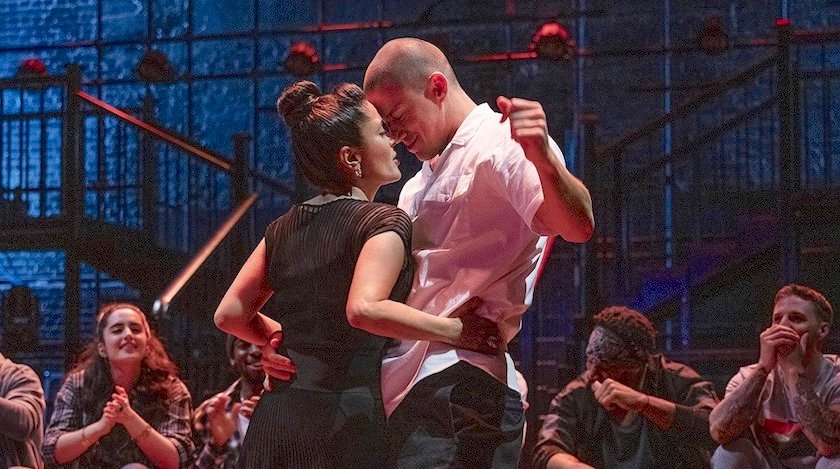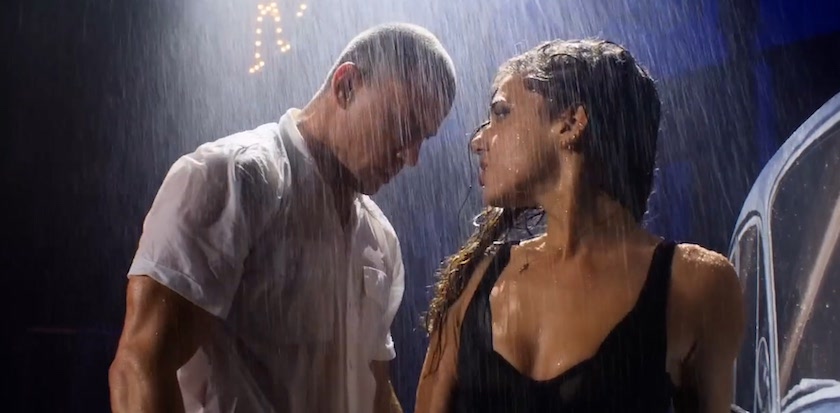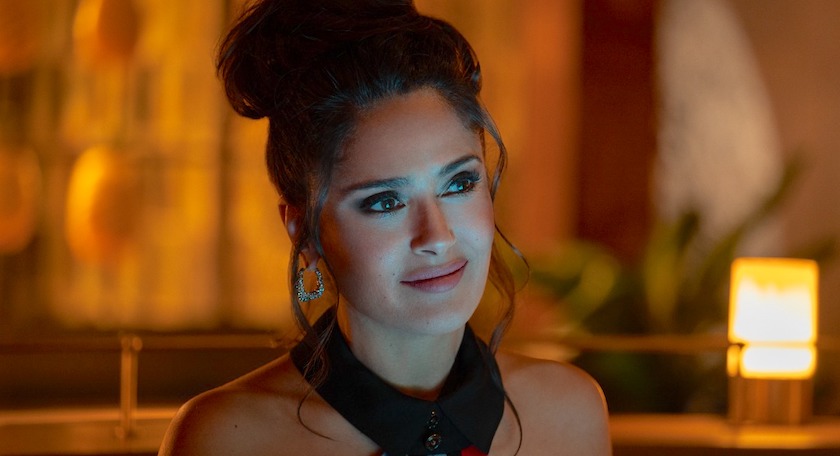
A feast of genre by way of drama, dance and heist, Magic Mike’s Last Dance is perhaps Steven Soderbergh – returning to the franchise as director following 2012’s Magic Mike – at his most freewheeling. That said, it is not quite the poignant drama or high-energy dance film it thinks it is.
Having lost his furniture business following the hardships of COVID-19, MMLD finds the titular Mike (Channing Tatum) make ends-meet by working the rounds as a bartender. It feels like an era since Mike last donned the tear-away pants – and the film knows it, an interaction with Mike and a past client highlighting just how long it’s been. While the years have passed, the charismatic, chiseled Mike appears to remain an indelible presence to women.
Having first-hand experienced Mike’s tantric hold, a scene consisting of rhythmic thrusts and body-rolls that resemble the hills of Italy, wealthy benefactor Max (Salma Hayek Pinault) offers Mike the opportunity to travel to London to transform a high-brow period play into a steamy spectacle of dancing male-flesh. Initially hesitant, the light-on-cash Mike accepts the role of director, much to the chagrin of Max’s separated husband (Alan Cox).

Whether or not Mike has thrown in the towel (or chaps) entirely becomes one of the questions hanging around the entirety of MMLD, with the ultimate showcase – following a similar structure to the 2015 predecessor, Magic Mike: XXL – comprising most of the third-act. In what posits itself as an exploration of pleasure and repressed desires, it is to the detriment of these themes that the final performance renders as restrained, as though the cast were auditioning to be part of a boy-band.
This sanitisation extends to much of the film’s plot, with the series previous efforts to explore themes of fulfillment taking a back-seat for what becomes the behind-the-scenes feature for the Magic Mike Live experience.
Dancers are ornamental in the screenplay from franchise scribe Reid Carolin. Their displays of dancing prowess – ranging from ballet to hip-hop – however impressively performed, become subdued by a desire to keep their human side at a distance. This said, how the dancers are recruited and their involvement within a heist-like escapades is when the Ocean’s Eleven (2001) director imbues fresh flare upon the series.
Narration coming by way of Max’s precocious daughter, Zadie (Jemelia George), offers a New Scientist description into the psychology of dance. It is an effort that feels more superfluous than contributory, as if MMLD needed to balance out displays of flesh with deep-contemplation. The desire to announce themes, otherwise not present in entries past, creates an air of self-consciousness in a film that ought to be more comfortable in its skin.

This is most evident in the character of Hannah (Juliette Motamed), who mostly waxes dissatisfaction about presentations of women in storytelling. It is an effort that contradicts the film’s own acknowledgement to the stereotypes and tropes that fall upon women, but in doing so, reduces her to a maxim sprouting sound-board. The film becomes more ‘say’ than ‘show’.
There is a great dynamic between Mike and the livewire Max, with Hayek Pinault proving delightful in her portrayal as a woman defining her own terms. In her wake, Max takes ownership over the film, absorbing Mike into her mission for vengeance. While Tatum slips into the role of Mike as smoothly as a glove, he is offered little dramatic chops outside of turning Max’s fantasies into theatrical realities.
In a film where indulgence is key, Magic Mike’s Last Dance makes the error of being tame, stewing when it ought to sizzle.










